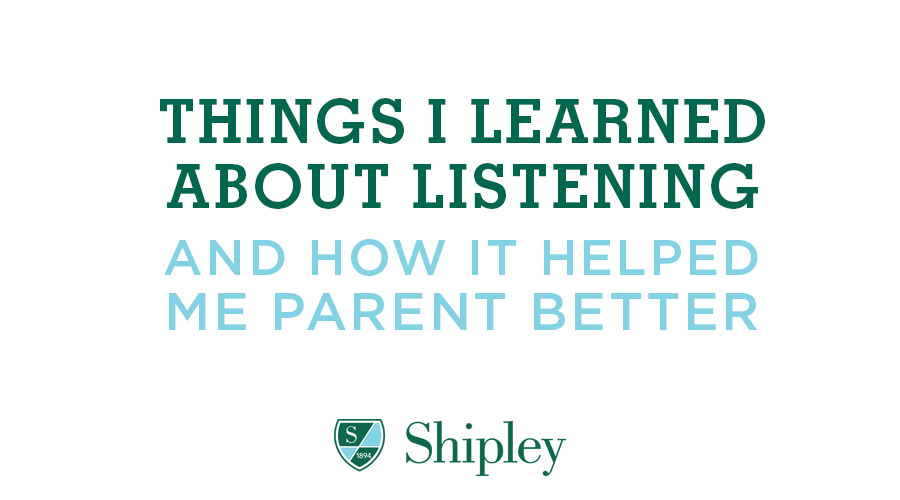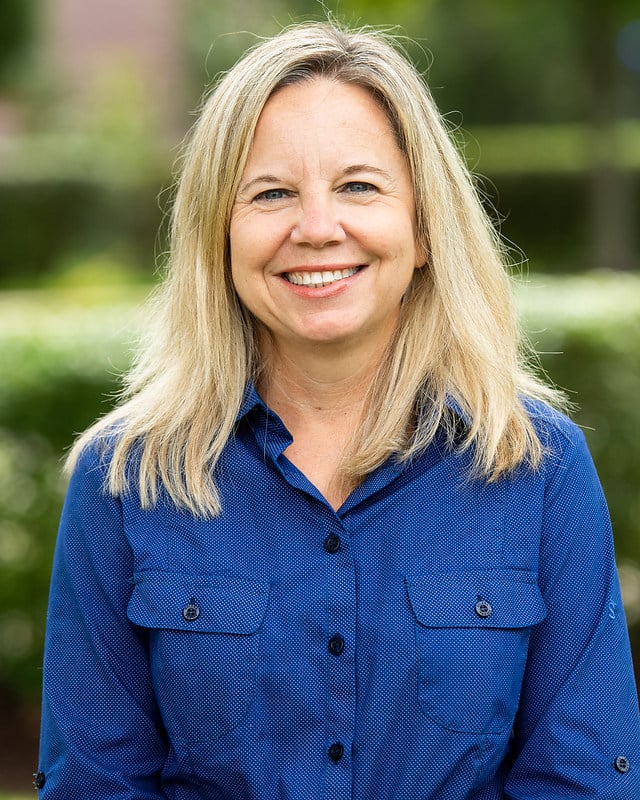Most parents have heard the following at some point from their child: “You just don’t understand!” It is probably true. Children today deal with such different challenges than their parents ever did, from sports commitments and social media pressures, to the college admissions process. It is a wonder we have any common ground at all on which to base a conversation. A few years back, I attended a workshop for teachers on “listening” through the Stanley H. King Counseling Institute. With help from the workshop, as well as what I have learned from Eastern philosophy as a yoga teacher, I have made a number of changes, both to my parenting and my teaching of teenagers, and it has paid off tremendously. They are such simple strategies, yet I did have to learn how to be purposeful in my use of them.
#1. Show that you are listening.
Everyone wants to feel heard, and while we might think we are listening to someone when they are telling us something, we really do have to show them that we are. Try repeating back what your child said:
“She said she didn’t like your shoes?”
“I am hearing you say that you have a lot of homework and a baseball game, and you are not sure how you are going to get it all done.”
Sometimes, just repeating the information back makes them feel like you get it. Even asking clarifying questions, such as, “And then what happened?” Or, “How did he react?” can make kids not only feel that you are listening, but by asking open-ended questions, you are pulling them into a conversation with you, which, as a parent, always feels like a win!
#2. Validate their feelings.
Validating them does not mean agreeing with them. A lot of times as a parent, we want our children to know we care, but we don’t necessarily want them to think that we agree with their choices. Saying something like, “Wow, that must have felt challenging,” or “Wow, that sounds like a lot to navigate.” Or even taking a leap with “Wow, I wonder if you must have felt betrayed in that moment,” go a long way to having your child think that you get it.
I did not believe this would work when I learned it at the workshop, because it seems so simple, but that night I was talking to my husband, and he was telling me about some mishap that had happened that day. I remember saying something to him like, “Wow, that must have been difficult for you, especially since you had worked so hard on that project!”
Lo and behold, he responded by saying, “Yes! It was difficult! Thanks for getting me.” Magic.
I use validation all the time with students, and my own children have told my husband and me that I am the parent who “gets” them.
#3 Support, don’t help.
There is a story in the yoga tradition about a monkey in a tree who sees a fish swimming in a river, and he thinks, “Oh no! He’s drowning! I have to save him!” So he scoops the fish out of the river and brings him back to the tree to “save” him.
Often, we have our own ideas of how to “save” others, and they are not necessarily what the person needs. Instead, get into the river with your “fish,” and be supportive of what they are going through, rather than trying to fix their problem. They would probably you rather not get involved anyway, and it will give them life lessons that will serve them well by teaching them to be a self-advocate and not needing someone to come to their rescue.
Ask your child something like, “What are some possible solutions here?” “How can you handle this?” And most importantly, “How can I support you and be there for you?” Often, kids know what they need to do, and by talking it through with you they will be able to come to a solution “on their own.”
Since my children have been in sixth grade, they have been solving their own problems with friends and school, and I resist getting involved as often as possible. It does not always work out in their best interest, but they have learned valuable coping mechanisms, as well as self-advocacy skills.
Growing up is a process, and they and we will probably not always get it right. (I am 50, and I feel like I am still growing up!) Letting your children know that you are there for them and that you are truly listening is one of the most important things that they can realize about your effectiveness as a parent.
Shipley's positive education framework nurtures students' well-being while helping them achieve in academics, arts, and athletics. Learn more about how this evidence-based approach to education can help all students succeed at https://www.shipleyschool.org/about/positive-education.










